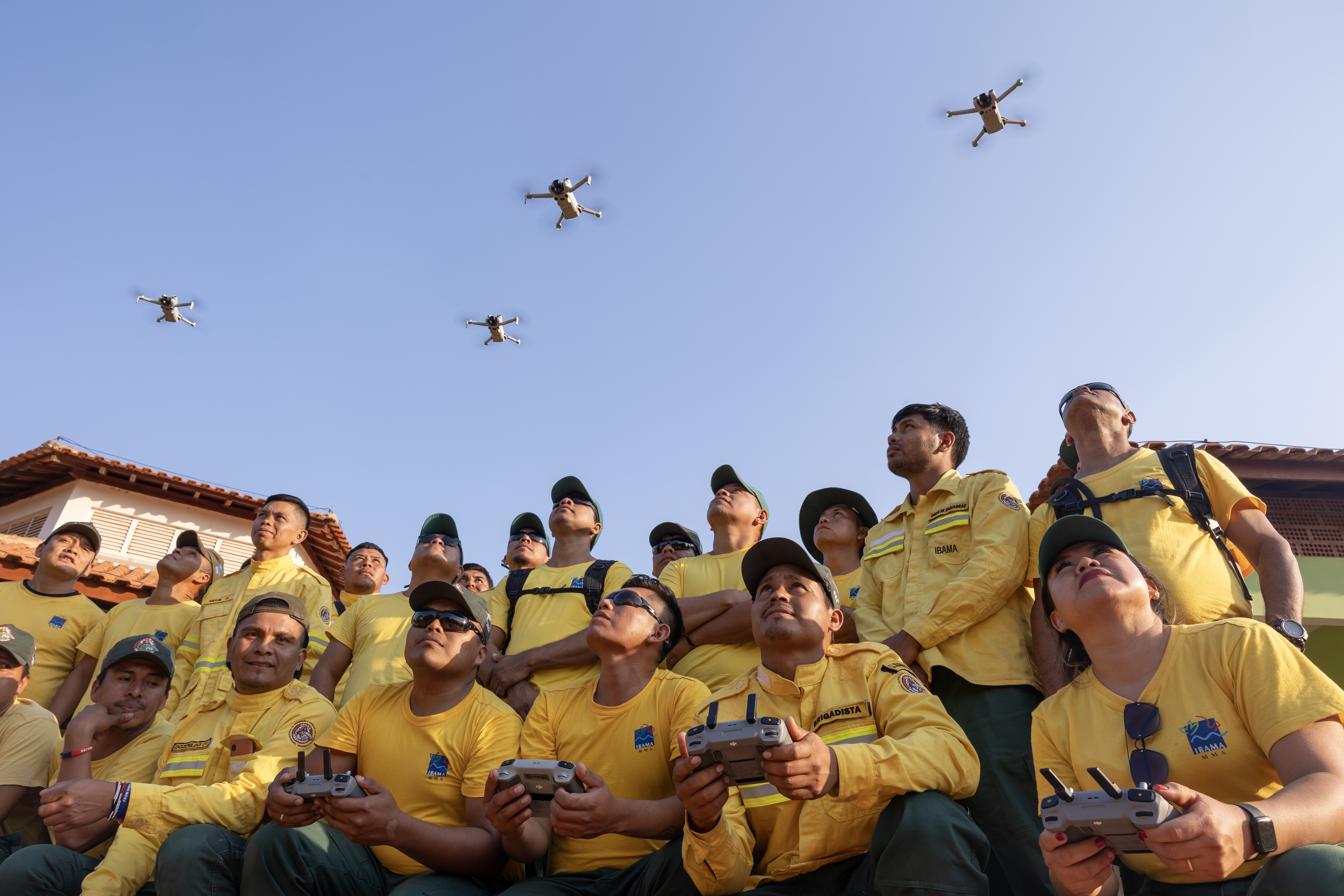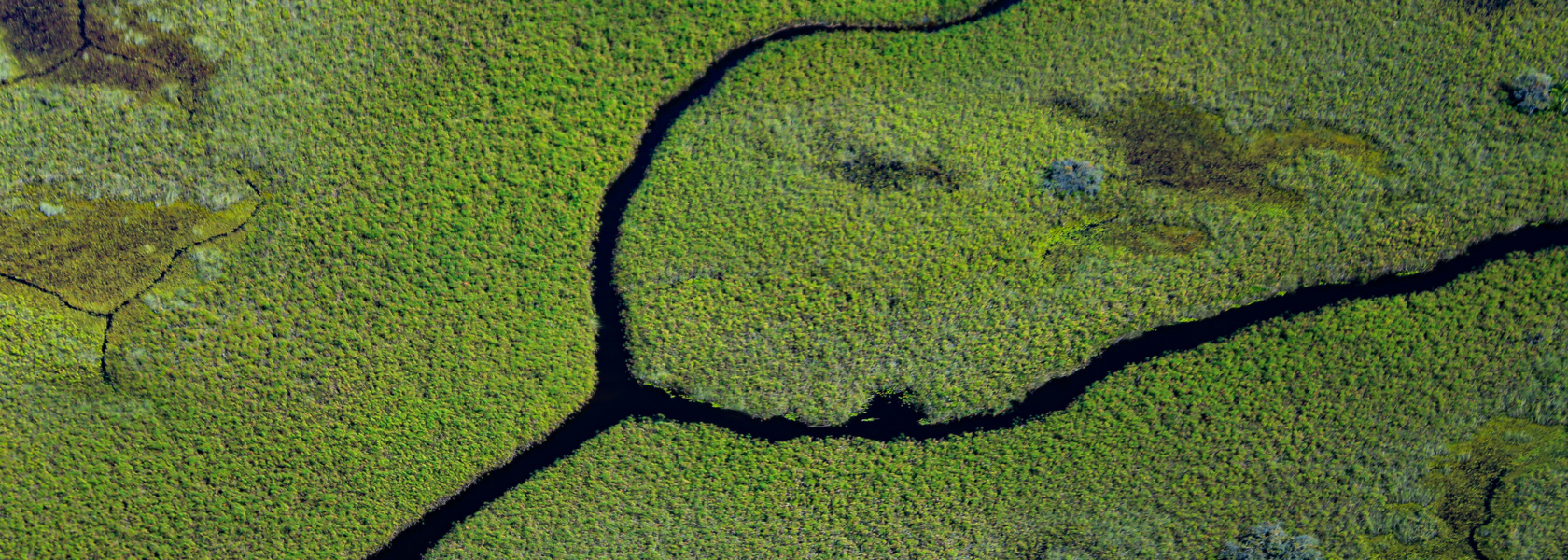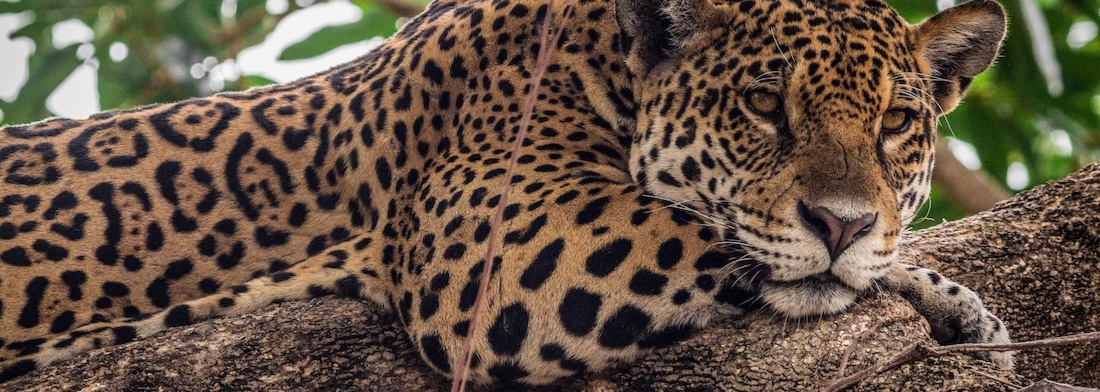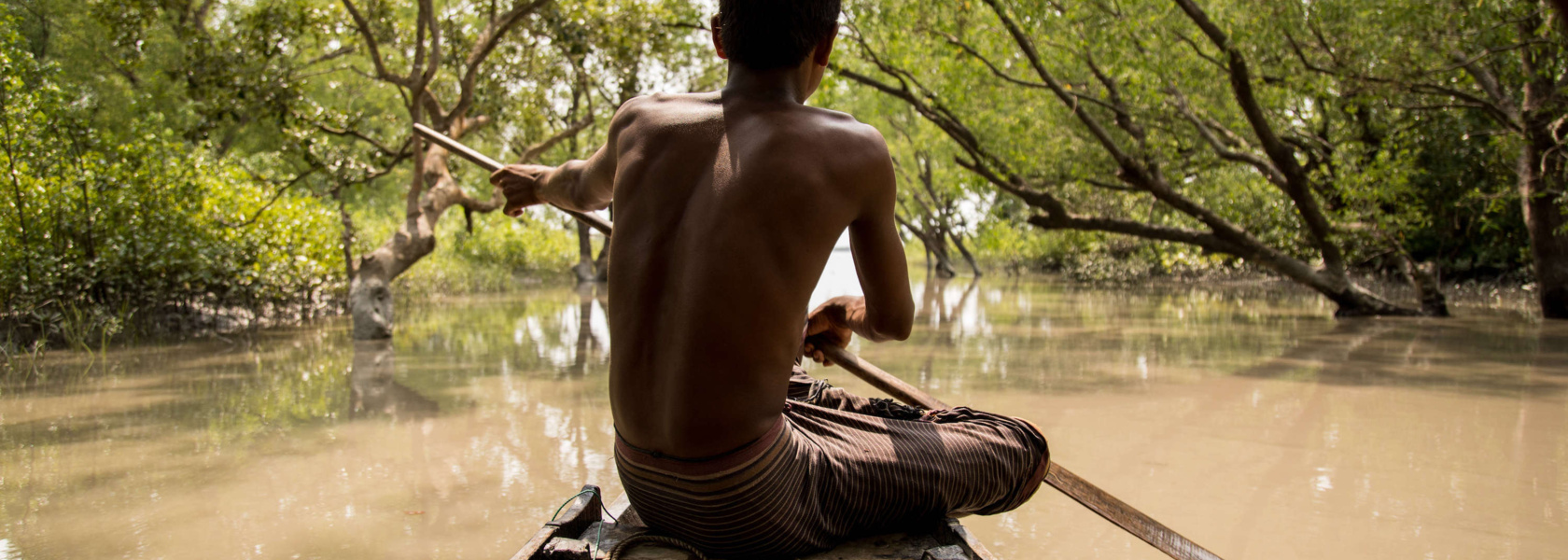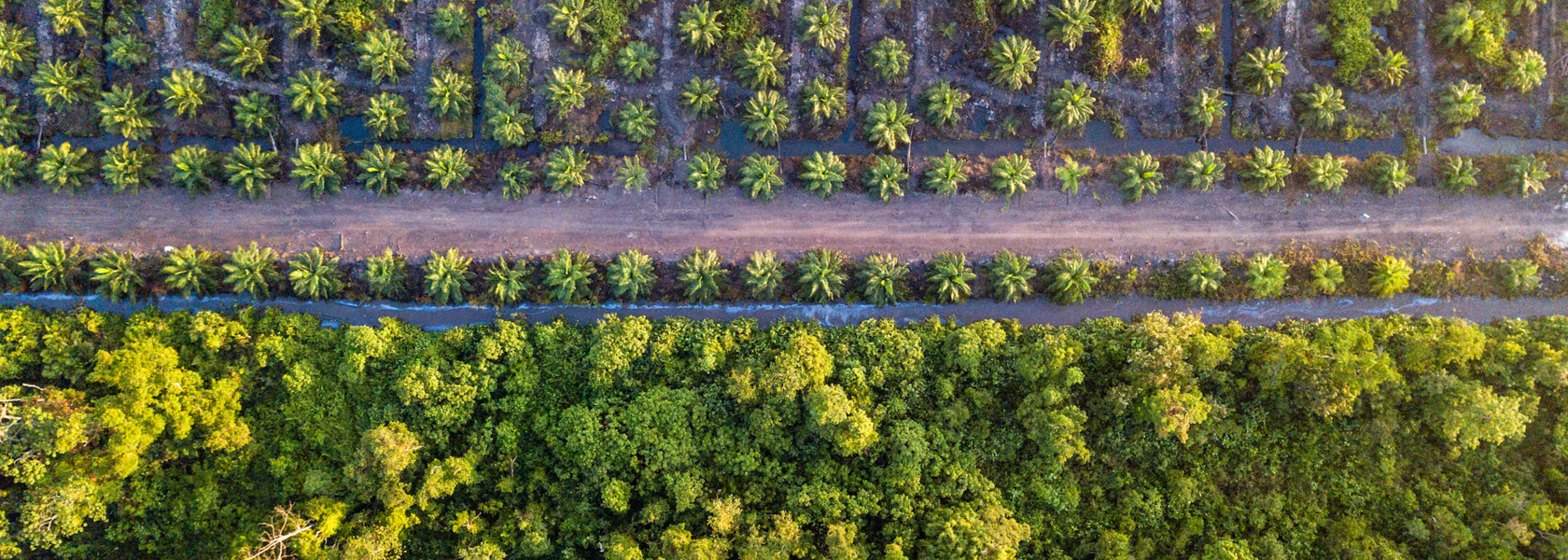The Pantanal - the largest tropical wetland on Earth - could effectively disappear by 2050. Devastating wildfires are increasing in scale and impact, destroying wildlife, weakening ecosystems and contributing to global heating, and threatening the Indigenous and traditional communities that call this wetland home. Every year, firefighters die while trying to protect it. By providing latest generation drones and training to Indigenous volunteers and other firefighters, we help them better defend this irreplaceable region.
We help Indigenous and riverside firefighters to protect the Pantanal and its inhabitants. While seeking to save both the environment and lives, firefighters often take lethal risks.
Firefighting is among the most dangerous professions worldwide. In Brazil, over 278,000 fires were recorded in 2024, claiming the lives of at least 11 firefighters. This reality underscores a deeper issue of climate injustice. More than half of federally hired firefighters in Brazil are Indigenous, chosen for their unique skills in navigating and protecting wild territories. Having stewarded their lands sustainably for generations, Indigenous firefighters now face global heating’s most severe consequences while risking their lives to combat climate-driven disasters.
We work to support these defenders. We travel to Indigenous territories across the Pantanal and its outskirts to donate latest-generation drones, cameras, radios and other technology equipment. By training the people on the front lines on how to use these tools, our work directly increases their firefighting capability, helps them target scarce resources and, by showing the direction and intensity of wildfires better protects them.
Fires in the Pantanal
The Pantanal is the largest tropical wetland on Earth, stretching across Brazil, Paraguay, and Bolivia. In 2020, wildfires destroyed one-third of its territory. Over 38,000 square kilometres – an area larger than Belgium – burned.
The wildfires released 115 million tons of carbon dioxide into the atmosphere, which is about a third of the UK's annual emissions in 2023. 17 million wild vertebrate animals were directly killed by the fires and many more died shortly afterwards, due to a lack of food and water. The impact on the Pantanal’s wildlife will take years to recover from.
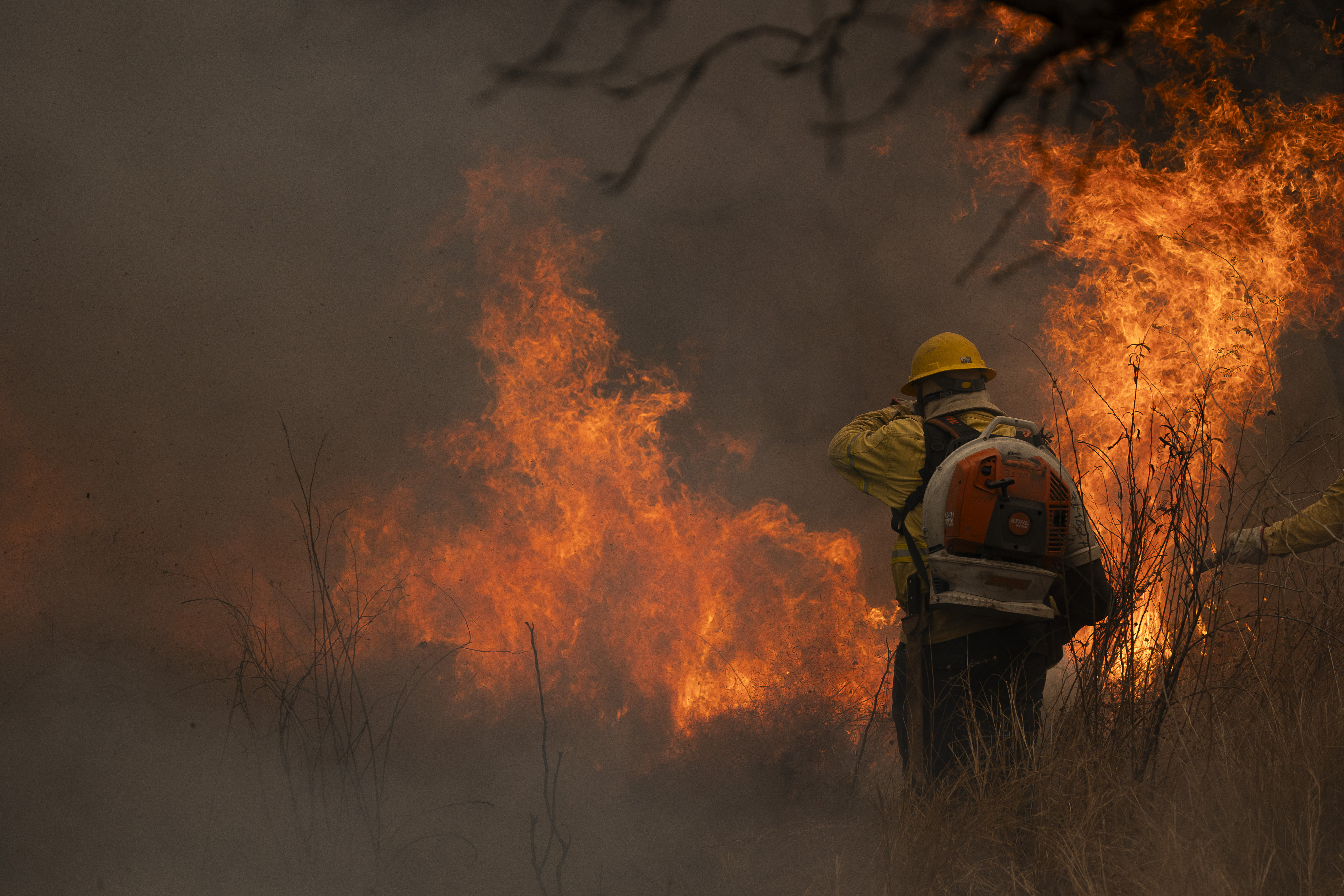
How this looks in practice
More than 100 Indigenous and other grassroots firefighters from 15 squads, located in four different Indigenous territories, have already benefited.
The equipment we donated was carefully chosen to fit the firefighters’ needs– latest-generation professional drones, which are extremely compact and lightweight, and have extended battery life and autonomy.
The brigades we have trained so far protect over 600,000 hectares of native grasslands, flooded savannas and forests. These territories are home to rich and unique endangered wildlife and are essential to the livelihoods of thousands of people, including the Kadiwéu Indigenous Territory, which is the largest Indigenous territory in the Pantanal. They also protected the Guató Indigenous Territory, which had been declared extinct for decades until 2002, when the Guató reoccupied their land and achieved recognition. However, as droughts intensify and fires become more frequent and devastating, supporting these firefighters is ever more vital.

This programme demonstrates the powerful impact of combining drone technology with Indigenous and other grassroots knowledge and land stewardship. By equipping local brigades with these tools, we strengthen territorial monitoring and protection and recognise and elevate traditional ways of understanding, navigating, and responding to environmental threats — particularly in remote and sensitive ecosystems like the Pantanal.
Building on our first successes, EJF plans to expand the project to other territories on the outskirts of the Pantanal. We will prioritise the protection of river sources that feed into the biome, recognising their critical role in maintaining the ecological balance of the wetlands. As we widen our coverage, we will deepen our collaboration with Indigenous communities across the region, strengthening their position as frontline environmental defenders.
SIGN UP FOR OUR EMAILS AND STAY UP TO DATE WITH EJF
